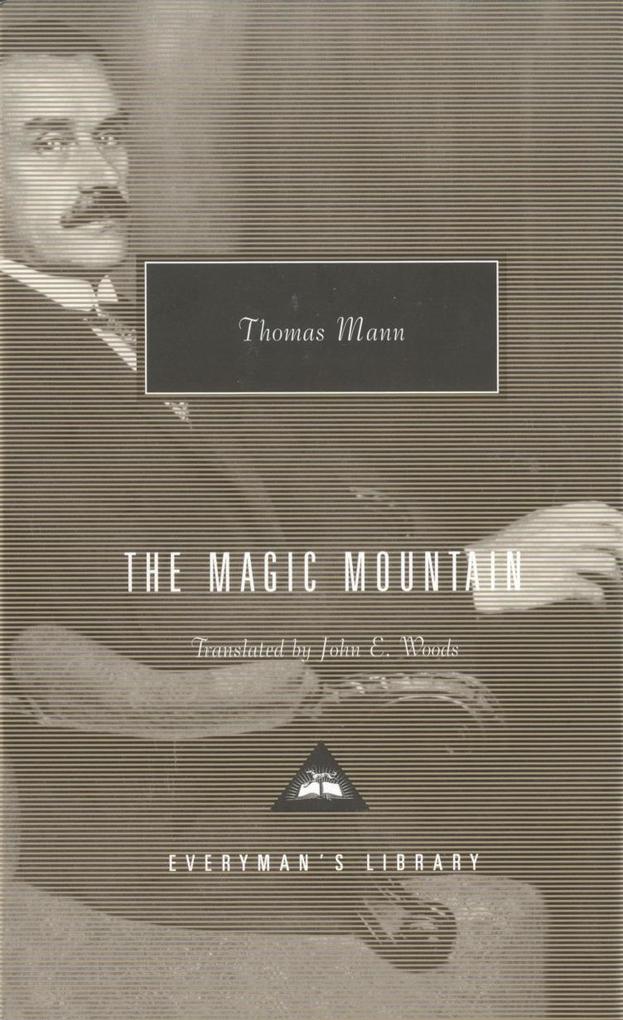
Zustellung: Sa, 30.11. - Do, 05.12.
Versand in 2 Wochen
VersandkostenfreiBestellen & in Filiale abholen:
Mann began working on The Magic Mountain in 1912, following a few weeks' visit to a sanatorium in Switzerland. Twelve years later the novel that had begun as a short story appeared in two long volumes. The war that had postponed the book's completion had "incalculably enriched its content." Now it was a massive meditation on "the inner significance of an epoch, the pre-war period of European history." It was an immense international success from the time of its publication.
The Magic Mountain is the story of an unassuming, undistinguished young engineer named Hans Castorp who sits on the balcony of a sanatorium, wrapped in his camel's hair blanket, thermometer in his mouth, naively but earnestly pondering the meaning of life, time, and his love for the beautiful Frau Chauchat. Among the other characters on this Germanic ship of fools are the malapropian Frau Stohr; Hofrat Behrens, the head doctor, and his hearty but sick-looking sidekick, Dr. Krokowski; Ludovico Settembrini, the enlightened humanist; Han's noble cousin Joachim Ziemssen; and Hermine Kleefeld, who, with her whistling pneumothorax, is the pride of the Half-Lung Club. In this community organization completely in reference to disease, Hans Castrop achieves a kind of transcendence unimaginable in the world of the "flatlands" below him.
The Magic Mountain is the story of an unassuming, undistinguished young engineer named Hans Castorp who sits on the balcony of a sanatorium, wrapped in his camel's hair blanket, thermometer in his mouth, naively but earnestly pondering the meaning of life, time, and his love for the beautiful Frau Chauchat. Among the other characters on this Germanic ship of fools are the malapropian Frau Stohr; Hofrat Behrens, the head doctor, and his hearty but sick-looking sidekick, Dr. Krokowski; Ludovico Settembrini, the enlightened humanist; Han's noble cousin Joachim Ziemssen; and Hermine Kleefeld, who, with her whistling pneumothorax, is the pride of the Half-Lung Club. In this community organization completely in reference to disease, Hans Castrop achieves a kind of transcendence unimaginable in the world of the "flatlands" below him.
Produktdetails
Erscheinungsdatum
15. Juni 2005
Sprache
englisch
Seitenanzahl
904
Reihe
Everyman's Library Contemporar
Autor/Autorin
Thomas Mann
Übersetzung
John E. Woods
Solist/Solistin
A. S. Byatt
Verlag/Hersteller
Produktart
gebunden
Gewicht
839 g
Größe (L/B/H)
207/135/41 mm
ISBN
9781400044214
Entdecken Sie mehr
Bewertungen
0 Bewertungen
Es wurden noch keine Bewertungen abgegeben. Schreiben Sie die erste Bewertung zu "The Magic Mountain: Introduction by A. S. Byatt" und helfen Sie damit anderen bei der Kaufentscheidung.









